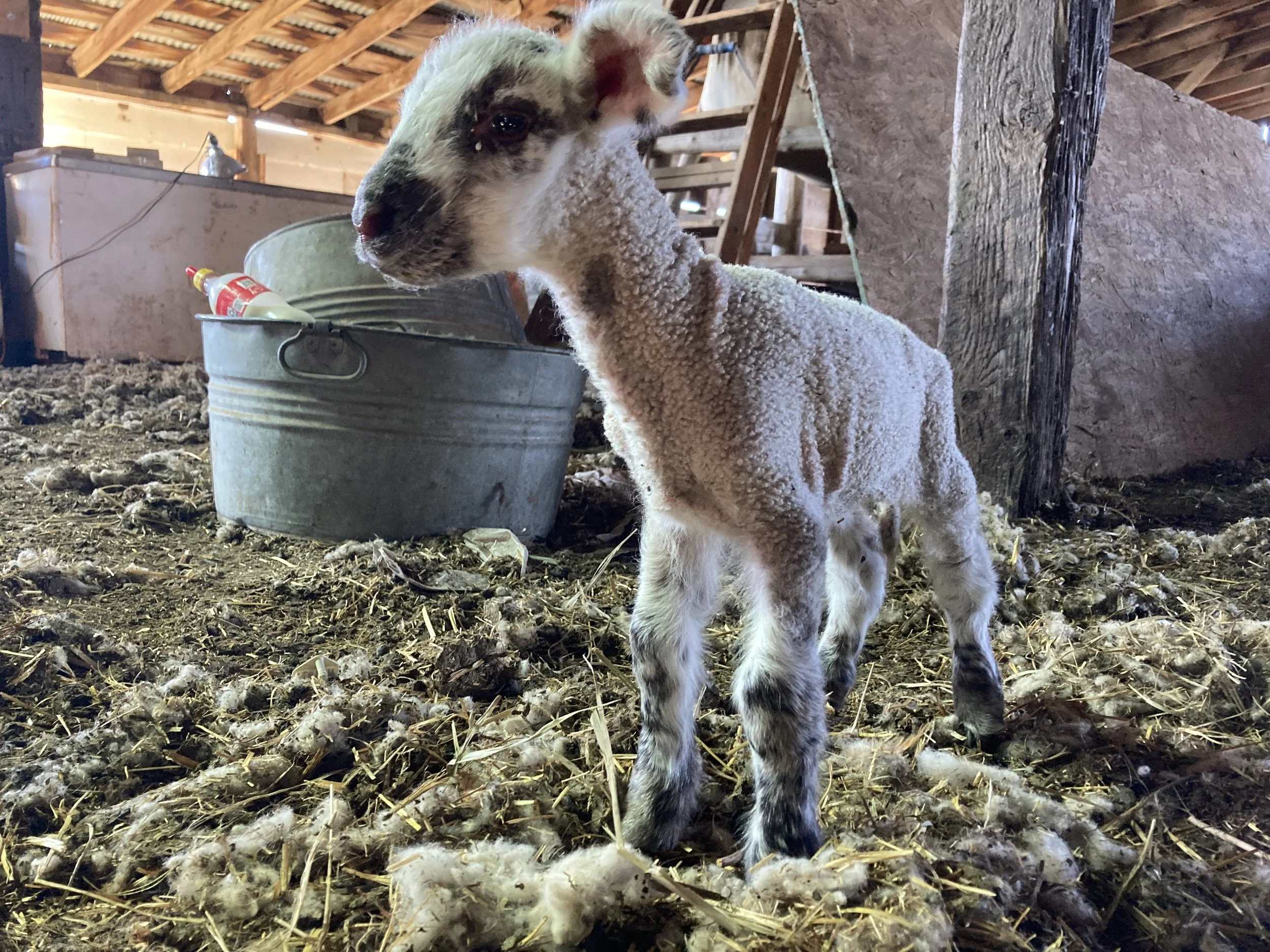Mighty Honey
Something was wrong when I walked up to the yearling ewe who hovered over her tiny newborn lamb.
I wasn’t sure what it was, but the ewe acted distraught, suddenly dashing in a wide circle around her lamb, constantly scanning the area and bleating continuously.
The lamb called to her mama, reminding her over and over of her responsibility and devotion.
Lambing season is always a seesaw between a higher probability of keeping newborns alive and grass management.
The new May grass is vulnerable to repeated grazing as it grows roots that feed leaves that feed roots that require ephemeral soil moisture.
Cold wind, rain or snow quickly chill a lamb so it curls into a ball, doesn’t nurse and starves to death.
So when forecasters predicted more than an inch of rain and snow last week, I sacrificed the grass in the Home Pasture so newborn lambs would be close to the warm barn.
Then as soon as the sun came out, I herded the flock up west into a farther pasture.
The ewes kept lambing on that fresh spring grass up west while the older babies lolled in the sun, soaking warmth into their bones.
This year, most of the lambs are stout and healthy so I was surprised by the yearling ewe anxiously circling her tiny runt of a lamb on a warm sunny day.
Like a teenaged mother, a yearling is usually uncertain about what is happening and probably wishes she could just have her normal life back. Instead, that alien thing that just came out has somehow burrowed deep into her psyche.
I stood and watched the yearling buzzing around her baby for a few minutes, wondering whether the yearling acted so crazy because she couldn’t find one of her twins.
I scanned the area, searching for another tiny bump rising above the tall grass.
Nothing.
I wondered if a lucky coyote happened across the first twin while the new mother was having the second twin.
Finally, after an hour of slow, patience-draining effort, the yearling and tiny lamb were at the barn where I took a closer look.
The baby only weighed 2 pounds at most – probably closer to a pound. I wasn’t sure she had developed enough to survive.
But she was a fighter.
The mighty baby wanted to nurse even though she couldn’t even reach supper.
I haltered the ewe and held the baby up to nurse.
Not much milk in that udder.
The ewe flung herself over the fence a couple of times before the baby filled its tummy. Each time, I pulled the baby away from flying hooves.
I untied the ewe, hoping she would calm down overnight, but I expected to find a dead lamb in the pen the next morning.
I was wrong.
I found the runt lamb snuggled up in a different pen, hungry and insistent.
It didn’t take long to assess the situation: A few more of the ewe’s unintentional gut punches along with the Siberian gulag diet plan would do the lamb in.
I’ve come close, but never starved either of my children. The lamb’s chances were higher in my arms.
Our theme this year for bum lambs that we feed is Bread.
We already have Wheat, Rye and Sourdough.
I turned her mama out and Honey Wheat – or Honey for short – joined the other bottle babies.
Honey is so small that she slides easily through panels and fences to explore her world.
She wraps her tongue around the bottle nipple and sucks furiously, delighted tail wagging, as I feel her tummy expand.
She doesn’t know she is tiny and helpless.
She thinks she owns the world.
Mighty Honey is my new hero.
